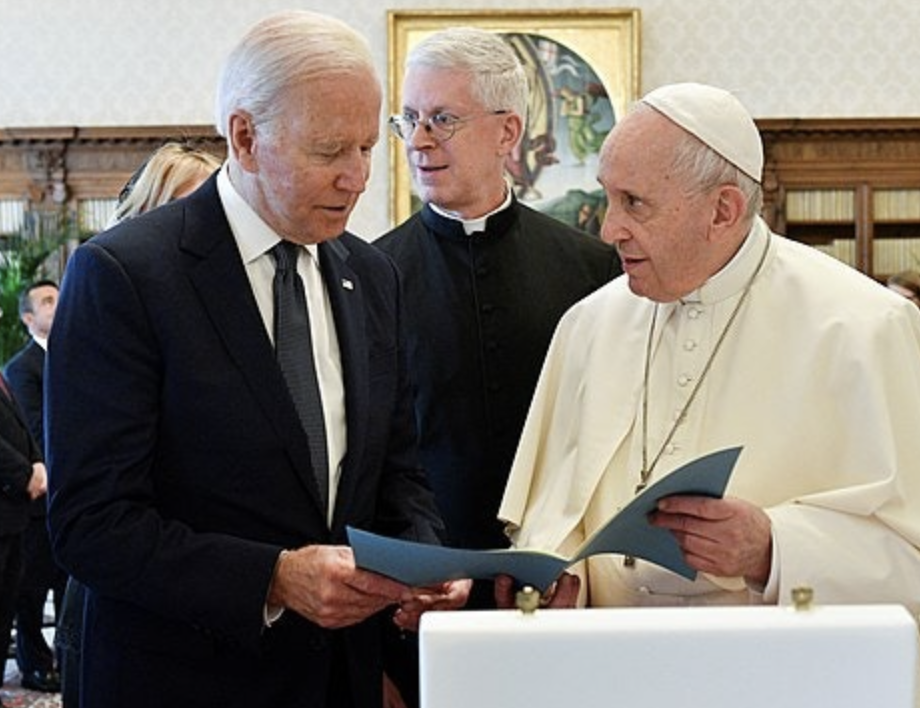There is nothing unusual about a photograph of two men embracing at a gay Pride march, surrounded by rainbow flags, banners and New Orleans-style beads.
But one of the men in this image from the latest "He Gets Us" Super Bowl advertisement is wearing a John 3:16 hat, as in the Bible verse proclaiming: "For God so loved the world that He gave His only begotten Son, that whoever believes in Him should not perish but have everlasting life."
Many of the ad's photographs are easy to interpret, such as a man removing "GO BACK" graffiti from a home, a woman helping a weeping man in a grocery store, a firefighter hard at work and a young football player comforting a defeated opponent.
But the John 3:16 hat raised the theological stakes in the Pride photograph, noted Samuel D. James, an editor active in Christian publishing and founder of the Digital Liturgies website.
"It's obvious one of the goals of 'He Gets Us' is to cut across political and ideological divides," he wrote, at The Gospel Coalition website. "The writers know where the fault lines in American religious culture are – abortion, LGBT+, race, class and so on. And who could resist being moved by these images of human vulnerability and compassion? Who can push out of his or her mind the many moments in the Gospels where Jesus met such needs and taught his followers to do the same?"
The ads seek to create "curiosity about and sympathy for Jesus," he added, with a style targeting an "impressionistic, algorithmic generation." But there's logic behind the debates triggered by these advertisements. Their content is vague, since the "image-based, music-backed ads lack exposition or annotation; such things would only get in the way of the audience's emotional response."
The Pride scene resembles a photograph, in the 2024 Super Bowl ad, of a protester "washing the feet of a young woman outside of an abortion clinic," said James, reached by telephone. There's no way, for example, to know if the patient is entering or leaving the facility.










